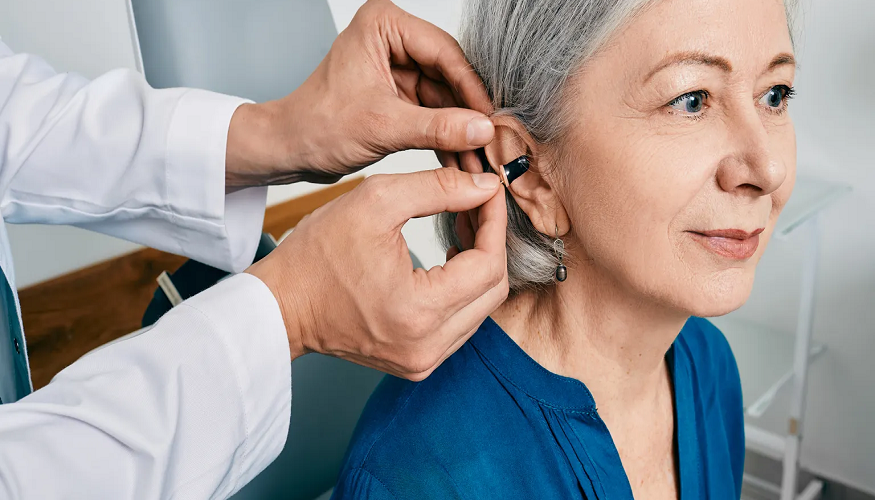General News Blog
My WordPress Blog
My WordPress Blog

For most individuals that suffer from auditory loss, one of the best options that doctors have found is hearing aids. With a wide variety of kinds and modes, there’s generally an option for anyone that suffers from auditory issues.
When someone suffers from auditory loss, they frequently have many questions about hearing aids. They may not fully understand what these gadgets do, how many kinds there are, or if insurance will cover them. In this quick guide, we will answer all this and more.
Hearing devices are little digital contraptions that may be tailored to meet various kinds of auditory loss. All electronic listening equipment possesses one or more mikes to catch noise, a microchip that magnifies and works through the sounds, and a speaker that transmits the signals to the auditory canal. To power the device, a battery is also included.
High-end hearing aids offer extra characteristics. These may include such features as customized noise and self-adjusting settings. As OTC hearing devices aren’t as adaptable, all folks aren’t exemplary candidates for OTC.
Hearing aids are automated to correspond to your extraordinary auditory loss pattern. They‘re normally given to individuals with a kind of auditory loss called sensorineural, which means that some of the internal ear’s small hair cells are impaired. The remaining vigorous hair cells pick up the noise emitted by the hearing aid and dispatch it as nerve signs to the cerebrum via the hearing nerve system.
Power devices are frequently utilized for folks with serious or intense hearing impairment because applied science can offer more energy to address harsh auditive detriment.
Quite a few folks are uncertain if they do or do not need hearing aids. Audile devices are generally suggested if your auditory test findings indicate hearing impairment on an audiogram.
Those who guess they possess deafness should undergo examinations and therapy. Auditory impairment is not only awful for talking to others, but it is moreover terrible for your wellness. Folks with untreated auditory loss have greater amounts of cerebrum deterioration and audible deprivation.
There are two different kinds of hearing aids. One style fits in the ear, while the other fits behind the ear. In-the-ear devices are often hard to find and fit in the ear. Behind-the-ear devices have more features and sit on top of the ear.
Insurance is a question that many folks will have questions about when it comes to hearing aids. These devices come in a wide variety of costs. Some are under $1,000, while higher-tech ones will cost as much as $4,000 per ear. Many people pay out-of-pocket for auditory devices because they’re not commonly covered by insurance plans. However, it is still a great notion to speak with your insurance company to question if they provide any rebates. For youngsters, insurance is more apt to pay for a portion of auditory instruments. Just check with your hearing specialist to see what’s accessible to them.
Other alternatives for paying for your hearing devices could include financing provided by your auditory care specialist, a loan from a third party like CareCredit, charitable organizations, or possibly assistance from relatives.
Programs such as AARP’s hearing care program may also offer low-cost entry to auditory care.
If you are in the Clearwater, FL area and suffer from auditory loss, Countryside Hearing Aid Services would like to speak with you. They offer consultations and hearing evaluations and repair and program hearing aids.